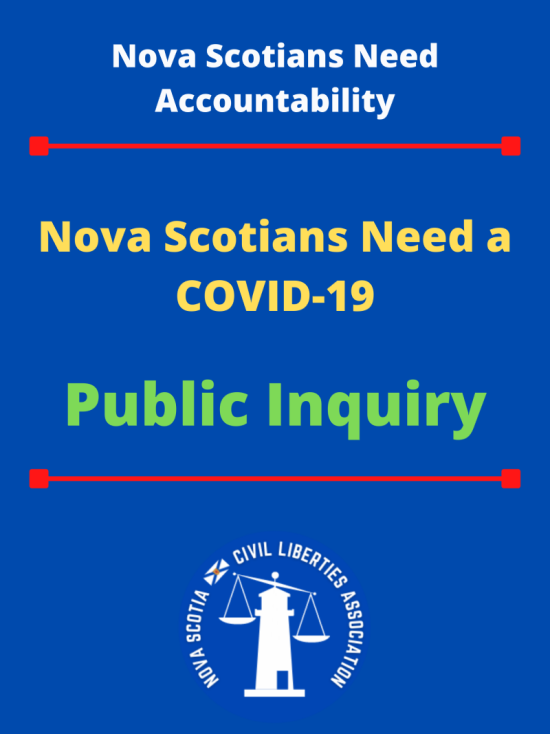Canadian society is predicated on certain institutional features. Whereas other countries designate authority based on cronyism or nepotism, we historically opt for promotion and appointment based on merit. Whereas other countries lack accountability and transparency in the operations of those authorities, we expect both.
These features, however, should not be taken for granted in our society. They require the vigilance of the citizenry and an independent media to investigate and disclose. States of emergency and general crises present a particularly challenging condition that threaten those features, and as such, an even greater degree of public scrutiny and inquiry is required.
In Nova Scotia, we are currently seeing such an example, with all of the challenges to that process, in the inquiry of the Portapique mass-shooting, the worst mass shooting in Canadian history. However uncomfortable and difficult the process is to the men and women of law-enforcement, to the families of the victims and to the community at large, this process strengthens those critical features that underlay our society.
The COVID-19 pandemic is another such situation; however, one for which almost no such critical analysis has taken place, outside of the rare inquisitive reporter and independent FOIPOP request by individuals. In fact, quite the opposite. A new governmental award has already been created and awarded – the Dr. Robert Strang Mayflower Award for Healthcare Professionals.
The Nova Scotia Civil Liberties Association calls for a public inquiry into the cost-benefit of our province’s response to the pandemic, including but not limited to:
The tailored approach employed by our province, compared to the broad-based pre-pandemic recommendations from national or international bodies, such as the WHO pandemic response plan
- To what extent the Province failed to assess the differential impact of its COVID-related policies, including blanket vaccine mandates, lockdowns and travel restrictions, on various vulnerable communities in Nova Scotia
The evidence for the decisions made throughout the pandemic, such as business closures, gathering limits, border restrictions and vaccine mandates
The deviations in political process and their justification given restrictions and other decisions were made by policy decree rather than the legislative process
The costs of such policies: mental health/suicides, pediatric, delayed screening, chronic condition neglect, substance abuse/misuse and economic.
The basis for a public inquiry is:
More than 300 COVID-related deaths
Potential Charter violations of responses, including vaccine mandates, mask mandates, border and travel restrictions and gathering limits
Economic impact of business closures
Invocation and renewal of the State of Emergency 51 times between March 22, 2020 and March 21, 2022
History of public inquiries in Nova Scotia
In 1989 the Province passed into law the Nova Scotia Public Inquiries Act. The Act was amended in 2015. Conspicuous by its absence is any statement of purpose or intent, maybe because it should be obvious, although in Ontario’s Public Inquiries Act the very first section is titled “Purpose” which states:
The purpose of this Act is to establish an effective and accountable process for public inquiries where there is a public interest to,
(a) independently inquire into facts or matters;
(b) make recommendations regarding those facts or matters. 2009, c. 33, Sched. 6, s. 1.
Since its enactment, there have been seven public inquiries:
2022 Mass Casualty, 22 deaths by murder
2021 Lionel Desmond, 4 deaths - 3 murders and a suicide
2019 Nova Scotia Home for Coloured Children, abuse and failure of care
2010 Howard Hyde, jail cell death
2006 Theresa McEvoy, car crash death
1995 Westray Mine, 26 deaths from mine accident
1987 Donald Marshall, wrongful conviction
By comparison, it would be hard to argue that the pandemic does not justify an inquiry.
This analysis, much like the Portapique inquiry, helps strengthen the foundations of our society by promoting transparency and accountability without necessitating any blame. Our institutions can learn from the pandemic, and the respect and faith in our institutions would be affirmed to the citizenry.
